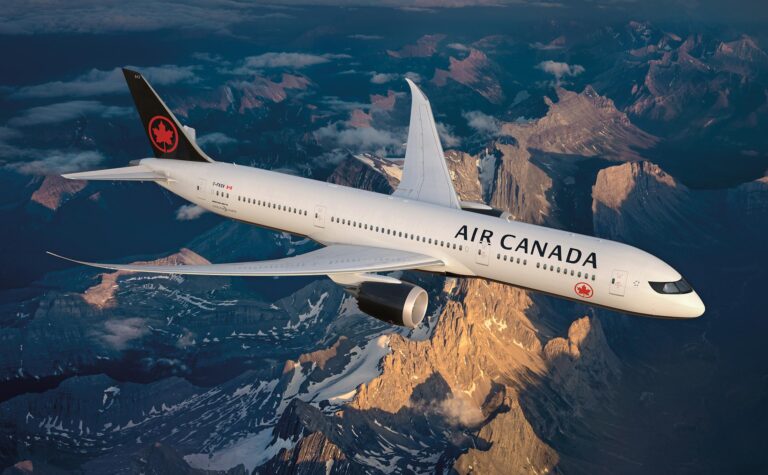Air Canada is facing renewed pressure as its flight attendants have endorsed a strike mandate, raising concerns over potential disruptions to the airline’s operations. The move, confirmed by the union representing the attendants, comes amid ongoing contract negotiations and growing tensions at the national carrier. While the airline hopes to avoid grounding flights, the latest developments signal a challenging period ahead for both Air Canada and its passengers, underscoring the fragile state of labor relations within the aviation sector.
Air Canada Faces Potential Flight Disruptions as Attendants Back Strike Mandate
Air Canada is currently navigating a critical challenge as its flight attendants have voted overwhelmingly in favour of a strike mandate. This development signals growing unrest within the workforce, adding pressure on the airline to engage in meaningful negotiations before disruptions become inevitable. The union representing the attendants has cited ongoing concerns including workload, scheduling, and compensation as key factors driving the mandate, underscoring a broader dispute that has lingered for months.
While the airline remains hopeful that dialogue will prevent any cessation of services, contingency plans are being urgently prepared. Flight schedules and customer impact projections have been analyzed across major hubs, highlighting vulnerabilities particularly on transcontinental and high-traffic routes. Below is a snapshot of potentially affected sectors if a strike occurs:
| Route | Frequency (flights/day) | Potential Impact |
|---|---|---|
| Toronto – Vancouver | 12 | High |
| Montreal – Calgary | 8 | Moderate |
| Halifax – Toronto | 6 | Low to Moderate |
- Customer advisory: Passengers are encouraged to monitor updates closely and consider flexible travel plans.
- Negotiations ongoing: Stakeholders emphasize the importance of swift resolution to avoid economic ripple effects.
- Operational readiness: Air Canada is coordinating with airport authorities and staff to minimize disruptions.
Union Leaders Emphasize Key Worker Demands Amid Growing Labor Tensions
Union representatives have once again highlighted the pressing concerns of airline staff, emphasizing the critical need for fair wages, improved working conditions, and enhanced job security. As flight attendants from Air Canada have given a strong strike mandate, the tension between labor groups and management continues to escalate, reflecting broader challenges within the aviation sector. Union leaders argue that addressing these demands is essential not only for workforce morale but also for maintaining reliable service during peak travel seasons.
Within the ongoing negotiations, workers stress the importance of comprehensive benefits and protections against unpredictable scheduling. The unions have laid out their primary demands, which include:
- Competitive wage increases aligned with inflation rates
- Guaranteed minimum rest periods between shifts
- Expanded health and safety protocols tailored for frontline staff
- Stronger protections against arbitrary layoffs
| Demand | Current Status | Union Priority |
|---|---|---|
| Wage Increase | Under Review | High |
| Scheduling Rights | Negotiation Phase | Medium |
| Health Protocols | Partially Implemented | High |
| Job Security | Pending | High |
Strategies for Mitigating Impact and Ensuring Continuity in Air Travel Operations
In light of escalating labor tensions, Air Canada has activated a series of contingency plans designed to minimize disruption and maintain service integrity. Prioritizing customer communication, the airline is expanding its digital platforms with real-time updates and proactive notifications about flight statuses. Operationally, Air Canada is reallocating crew members, optimizing aircraft rotations, and collaborating closely with third-party partners to cover potential gaps in manpower. These measures aim to sustain flight schedules while negotiations continue, underscoring the airline’s commitment to passenger experience.
Key Mitigation Actions Include:
- Increasing use of reserve flight attendants to cover shortfalls
- Enhancing ground crew efficiency to expedite turnaround times
- Implementing flexible booking options to ease passenger inconvenience
- Launching targeted communication channels for affected travelers
| Strategy | Purpose | Expected Outcome |
|---|---|---|
| Reserve Crew Deployment | Fill immediate staffing gaps | Reduced cancellations |
| Optimized Scheduling | Maximize aircraft and crew utilization | Maintained flight frequencies |
| Customer Communication | Keep passengers informed | Lowered frustration and complaints |
| Flexible Ticket Policies | Adapt to changes smoothly | Improved customer satisfaction |
Key Takeaways
As Air Canada faces mounting pressure from its flight attendants following the recent strike mandate endorsement, the airline is navigating a critical juncture that could disrupt operations and affect thousands of travelers. With negotiations ongoing, both sides appear aware of the significant consequences a work stoppage would entail. Industry observers will be closely watching developments as Air Canada seeks a resolution to avoid grounding flights and maintain service continuity.




